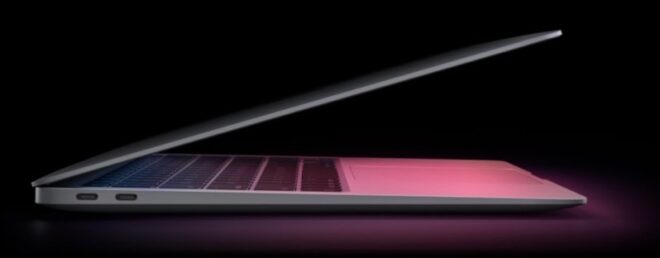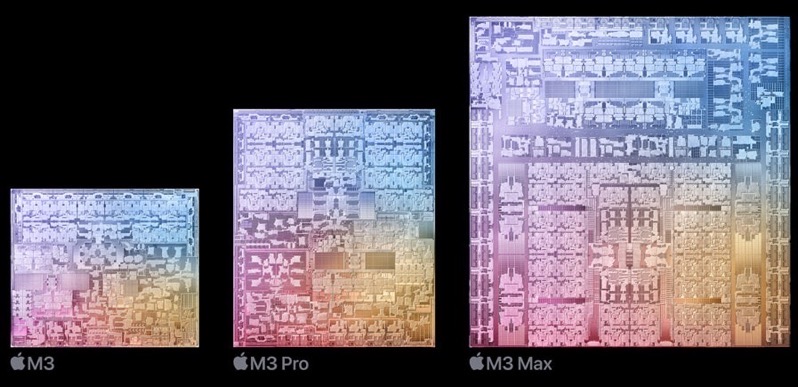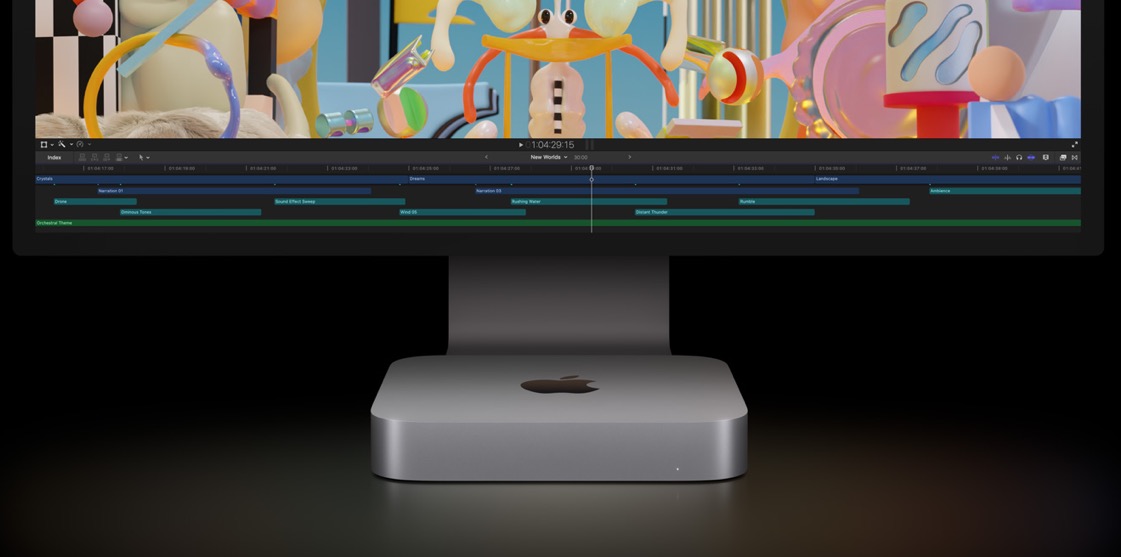
Apple’s M3, M3 Pro, M3 Max: What You Need to Know

Apple has unveiled its latest chipsets—M3, M3 Pro, and M3 Max—touted as the most advanced chips ever designed for personal computers. These chips are the first in the industry to utilize 3-nanometer process technology, offering significant performance improvements and new capabilities for Mac devices.
“With 3-nanometer technology, a next-generation GPU architecture, a higher-performance CPU, faster Neural Engine, and support for even more unified memory, M3, M3 Pro, and M3 Max are the most advanced chips ever built for a personal computer,” said Johny Srouji, Apple’s senior vice president of Hardware Technologies, in a statement.
The M3 family introduces a next-generation GPU with features like Dynamic Caching and hardware-accelerated ray tracing. These enhancements result in rendering speeds up to 2.5 times faster than the previous M1 chips.
The CPU performance cores and efficiency cores have also been improved, showing a 30% and 50% speed increase over the M1 chips, respectively. The Neural Engine in the new chips is 60% faster than its predecessor.
The chips also bring new features to MacBook Pro and iMac, including support for AV1 decode, which enhances video experiences from streaming services. The unified memory architecture in these chips supports up to 128GB of memory, enabling more complex workflows.
The M3 chip features 25 billion transistors and a 10-core GPU, offering up to 35% faster CPU performance compared to the M1. The M3 Pro comes with 37 billion transistors and an 18-core GPU, designed for more graphics-intensive tasks. The M3 Max, designed for the most demanding professional workloads, pushes the transistor count to 92 billion and features a 40-core GPU.
In addition to performance enhancements, the new chips are also energy-efficient. “The power-efficient performance of M3, M3 Pro, and M3 Max helps the new MacBook Pro and iMac meet Apple’s high standards for energy efficiency,” the company stated. Apple aims to have net-zero climate impact across its entire business by 2030, including its manufacturing supply chain and the lifecycle of every product.
These new chips signify a major leap in Apple’s silicon technology and are expected to set new industry standards for performance and efficiency.
The new M3 family of chips can be found in the new 14 and 16-inch MacBook Pro and also updated 24-inch iMac.

